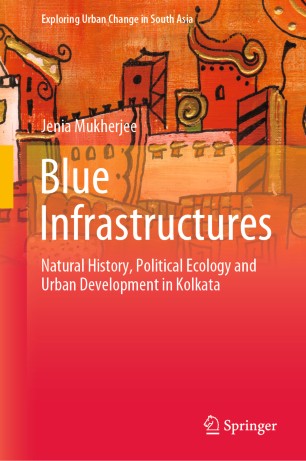

Most ebook files are in PDF format, so you can easily read them using various software such as Foxit Reader or directly on the Google Chrome browser.
Some ebook files are released by publishers in other formats such as .awz, .mobi, .epub, .fb2, etc. You may need to install specific software to read these formats on mobile/PC, such as Calibre.
Please read the tutorial at this link: https://ebookbell.com/faq
We offer FREE conversion to the popular formats you request; however, this may take some time. Therefore, right after payment, please email us, and we will try to provide the service as quickly as possible.
For some exceptional file formats or broken links (if any), please refrain from opening any disputes. Instead, email us first, and we will try to assist within a maximum of 6 hours.
EbookBell Team

4.0
86 reviewsThis book focuses on Kolkata, formerly the colonial capital of and currently a major megacity in India, in terms of its extensive blue infrastructures, i.e., its rivers, canals and wetlands as an integrated composite whole. It unfolds ways in which this reclaimed urban space could determine, and in turn, could get determined by political fate, economic calculations and social livelihoods across changing political-economic imperatives and with large-scale implications on urban sustainability. Employing historical urban political ecology (HUPE) as the methodological framework by combining urban environmental history and urban political ecology, the book studies the changing urban environmental equations through several centuries, and its impact on the city and its people. Weaving the past, present and posterity of deltaic Kolkata, the book demonstrates that it is in these ‘blue infrastructures’ that the anecdote of origin, the account of functioning and the apprehension of survival of the city is rooted. By emphasizing the ecology ‘of’ cities instead of ecology ‘in’ cities approach, the book exposes the limitations of contemporary ecological restructuring efforts regarding Indian cities. Further, it offers a blueprint for future innovative and empirical research focusing on other major cities. Accordingly, this topical and original book will be of interest to students and researchers of environmental humanities, political ecology and urban studies.